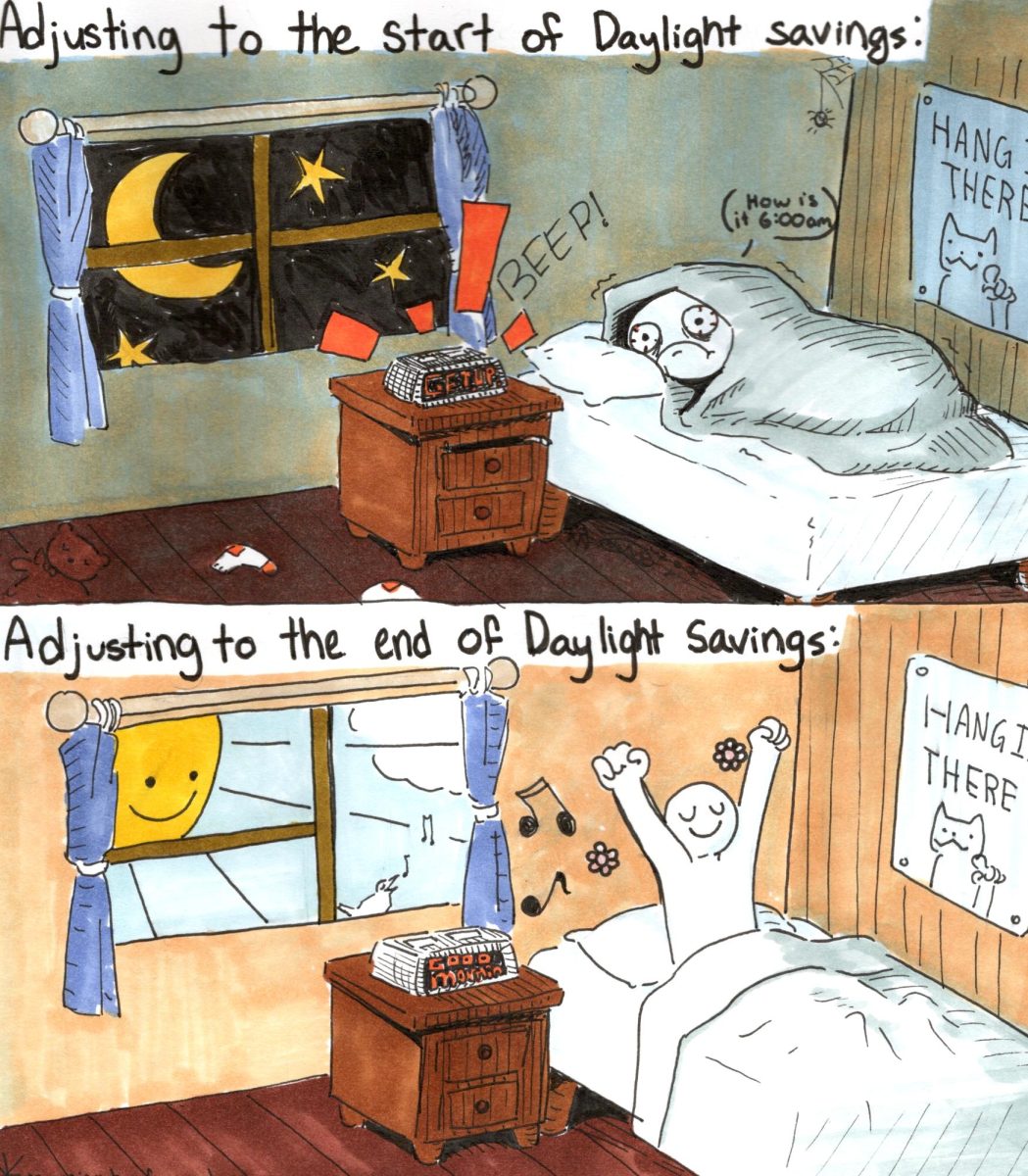Daylight Saving Time is the practice of setting clocks forward by one hour during the spring months to extend evening daylight and turning them back in the fall to gain the hour back. The United States of America is one of the few countries that still implements DST. Now, debates arise about its importance as many argue against it due to its vast complications.
The concept of DST was introduced in 1895 by New Zealand entomologist George Hudson. He wanted more daylight hours to collect insects. Germany established DST in May of 1916, as a way to conserve fuel during World War I.
There has been a growing movement to eliminate DST in the United States in recent times. For the country, DST begins on the second Sunday in March and ends on the first Sunday in November except for Arizona; as of 2024, Arizona is the only state that does not follow DST.
Originally put in place to have energy-saving benefits, many argue that it is outdated as technology allows for more efficient energy usage. In fact, many argue that having time shifts may harm health and well-being as research suggests that the time shift can disrupt sleep, especially in the spring when people feel like they are getting up ‘earlier’ due to the time change.
In 2018, The European Union voted to end DST by 2021, allowing each country to decide whether to stay on permanent standard time or permanent daylight saving time. However, disagreements among state members have delayed its implementation, which is why the majority of countries that still practice DST are in Europe.
In the United States, the Senate passed the Sunshine Protection Act in March of 2022 which proposed the elimination of DST. This act has not officially passed because the House of Representatives has not yet approved it. By eliminating DST, complications such as time management between the U.S. and other countries can be eliminated.
Some argue that reducing daylight in the cold winter pushes people to stay safe at home. In the spring, the extra hour may reduce crime rates and also allow for more evening activities.
If the Sunshine Protection Act passes, it would likely shift countries in Europe to also eliminate DST. However, it seems like this issue will persist even with the promise that this act will pass soon. Until then, Americans have to continue shifting the clocks, hoping for this to finally end.


















